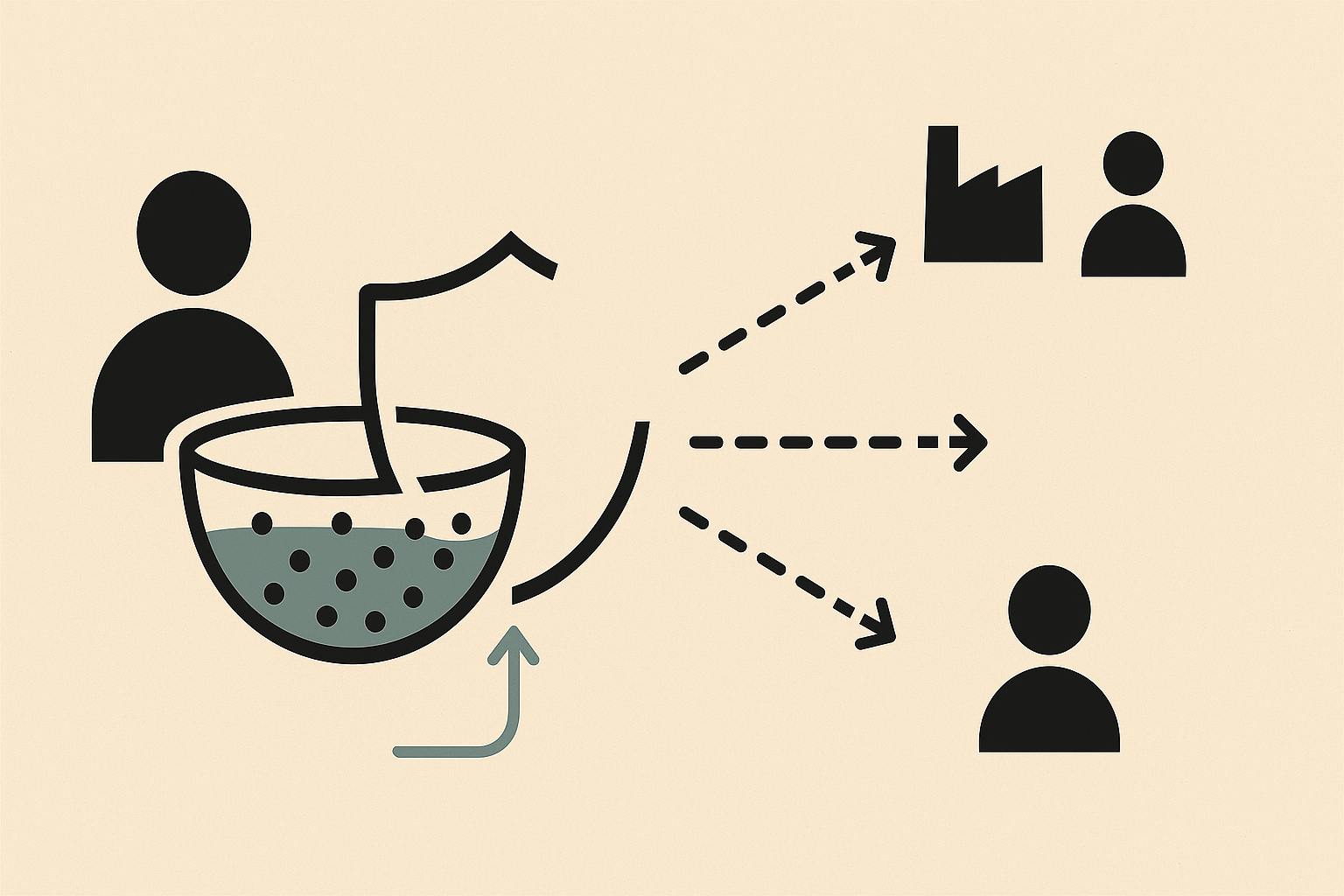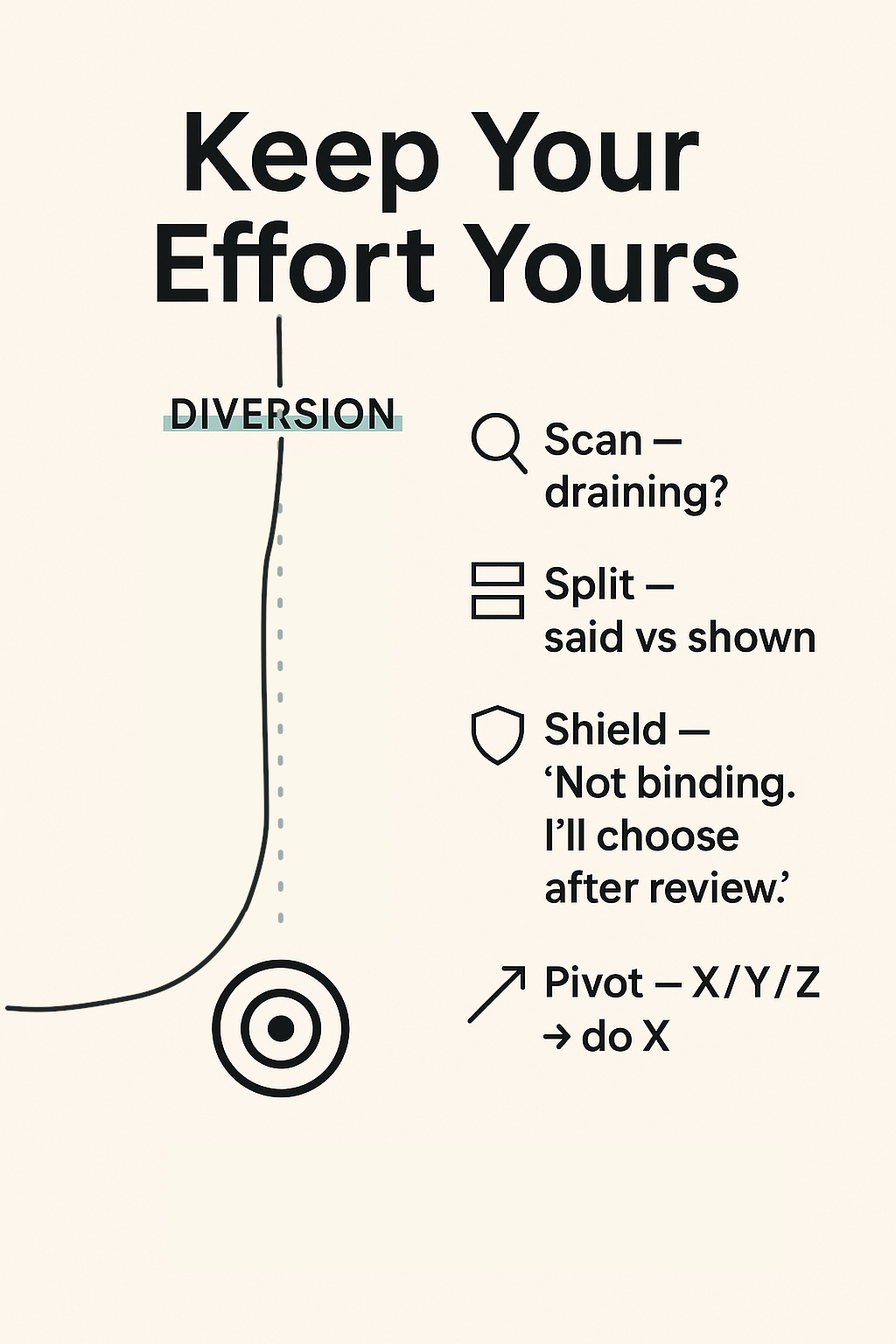Some conversations, meetings, or “opportunities” leave you lighter in wallet/energy/time—and they might not even deliver what you aimed for.
Whether it is fate, drama or something robbing your energy, fighting it can be complicated.
This can look like…
In Business: scope narrowing, “urgent” asks, fuzzy partnerships
Social Contexts: recurring favors, attention drains.
Partnering Situations: unclear plans, moving goalposts.
During Purchasing: contracts where “shown” doesn’t match “said.”

What if you could sense the risk of being drained, before it takes hold?
The moment you do lose the energy, it reflects on the people around you - and your need grows. The demand for you to gain certain fulfillment grows urgent, and guess the number one sales-tactic? Applied urgency. If you are unaware of this, you might meet it in the form of “special price for you” or the discounted price that expires not too long after you see it.
And that exact need; to be able to distinguish between incentivizing and words. That capacity to block out agreements you do not need - instead moving your energy to small wins that build up your energy, serving your goal. Can you imagine being able to exit the narrative frame, the story - instead building up surplus?
Here’s a simple method to achieve that
Try it once, and you’ll be building the capacity; run it twice and your skill will improve.
If you don’t feel it gives you surplus, let it go; if it does - make use of it.
1) Is this space draining?
Think of a recent social context, and rate each of these indicators 0-3:
- Clarity loss?
- Group fatigue around simple topics?
- Plans drifting off-goal?
On the lower end of 10: No issue, or practice caution - if over 3, continue.
2) Does what is said, and what is shown, match?
Write out two columns:
- Said: promises, terms, deadlines.
- Shown: incentives, penalties, who holds the keys.
The greater mismatch between what is said/shown, consider the risk of narrative being used to be greater: There is a lack of congruence (note that this can indicate an opportunity, if you’re positioned to make use of it).
3) Avoid being bound into the context:
If you feel bound into the context, think of it as being “noted”.
Explore how it is not binding, and that you can choose after reviewing it.
Follow with: “What happens if I opt out right now?”
If that leaves you feeling pressured or with fog, it’s a ping; you got a signal.
4) Pivot into action reinforcing what gives you surplus:
Think or write it out, and follow up:
“I’m proceeding with X to achieve Y within Z; you’re welcome to support.”
Examples:
- “I’ll order from a provider with clear terms today; I welcome assistance in finding alternative providers.”
- “I will continue taking instruction, to achieve the progress I need within the next months - it might benefit you by ..”
5) Eliminate the narrative grip
Check (don’t be too obvious):
- What’s being claimed?
- What’s not being mentioned?
- Who benefits by default?
If you’re not the default winner, note the situation or context down as diversion: Re-focus effort into X.
Try to avoid naming the structural issue, over motives. Keep the reflections at gut-level; short - and avoid arguing.

Spend 5-10 minutes training the skill by reviewing past situations
Pick two recent moments where you left drained. Fill this tiny worksheet.
Feel the difference: Pressure drops, clarity on what you can do - and your limited capacity for effort is applied towards your personal responsibilities.
Do this today
- Copy the tiny worksheet.
- Use this method once in the next interaction that nudges you off course.
- If you keep greater sovereignity, time and clarity - keep at it for a week.
Your effort is precious. Keep it landing in a way assisting you to drift towards what makes sense in your life.
